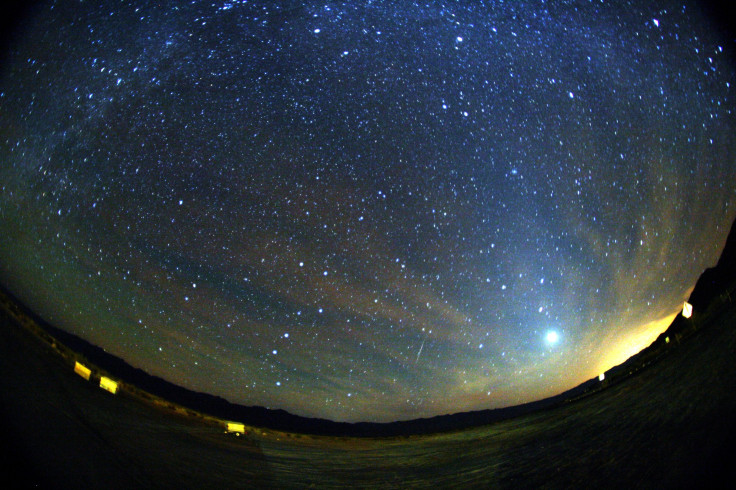Delta Aquarid Meteor Shower 2014 Live Stream: Where To Watch, How To View July's Stargazing Event

While everyone awaits August's Perseids, July has its own meteor shower that's set to peak this week. The Delta Aquarid meteor shower, also known as the Southern Delta Aquarids, is mostly visible in the tropics and the southern hemisphere but Slooh and NASA will have live streams of the Delta Aquarids' peak.
According to EarthSky, the Delta Aquarid meteor shower became active on July 12 while the weekend was an ideal time to view meteors due to the new moon. The Delta Aquarids gets its name as the meteors appear to originate from the constellation Aquarius around the star Delta Aquarii. While July's meteor shower gets its name from the constellation, the meteors are the result of a debris trail left behind by a comet as it travels around the sun. For the Delta Aquarids, it's unclear which comet is responsible for the meteor shower. NASA says the debris trail could have been left behind by two comets, Marsden and Kracht, while EarthSky says recent research points to Comet 96P Machholz.
During the peak of the Delta Aquarids, sky gazers can expect to see 15 to 20 meteors per hour. The southern hemisphere and northern tropics will have the best view of the meteor shower as the radiant is higher up in the sky, notes Meteor Showers Online.
As with all meteor showers, the best viewing occurs in the predawn hours, with people arriving 30 minutes to an hour early so their eyes can adjust to the darkness. The Delta Aquarids peak is slated for the predawn hours of Tuesday although stargazers can see meteors Monday night.
Slooh is to have a live stream beginning Monday at 10 p.m. EDT. The team will observe the Delta Aquarids from the Canary and Slooh astronomer Bob Berman said in a statement, "We're hoping to capture more meteors than ever before, despite the modest nature of this relatively little-known shower."
NASA will also air a Delta Aquarid meteor shower, beginning Tuesday night. The broadcast is to originate from NASA's Marshall Space Flight Center in Huntsville, Alabama, at 10 p.m. EDT.
© Copyright IBTimes 2024. All rights reserved.






















